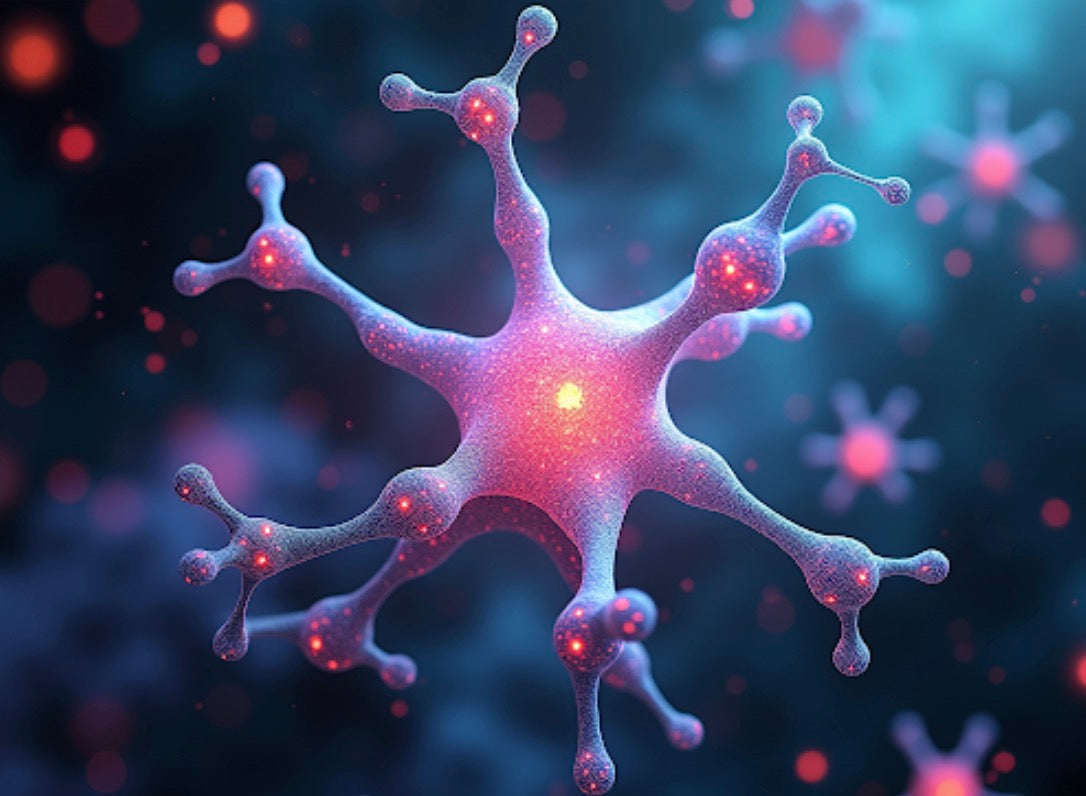
Unlocking the Mind's Gateway: Revolutionary Research on 5-HT2A Receptors Reshapes Psychedelic Medicine
06/25/25Share
Summary:
Discover how groundbreaking psilocybin therapy research on 5-HT2A receptors is reshaping psychedelic medicine. Learn how these brain receptors interact with compounds like psilocybin to unlock new therapies for depression, PTSD, anxiety, and more.
In a groundbreaking development that's sending ripples through the scientific community, researchers have made remarkable strides in understanding how psychedelic compounds interact with the brain's 5-HT2A receptors. This fascinating research, published in the prestigious Journal of Medicinal Chemistry, opens new frontiers in therapeutic possibilities and drug development.

The Gateway to Consciousness: Understanding 5-HT2A Receptors
Imagine the brain as an intricate cityscape, where the 5-HT2A receptor serves as a master key, unlocking doors to altered states of consciousness and therapeutic potential. These remarkable molecular structures, primarily found in the cortex, play a crucial role in mood regulation, perception, and cognitive processing.
What makes these receptors particularly fascinating is their unique relationship with psychedelic compounds. Unlike traditional psychiatric medications, psychedelics interact with 5-HT2A receptors in a way that can produce profound changes in consciousness whilst potentially offering therapeutic benefits for conditions ranging from depression to PTSD. This psilocybin therapy research has huge ramifications.
Breaking Down the Science: A Closer Look at the Research
The psilocybin therapy research team's methodology represents a masterclass in modern medicinal chemistry. Using advanced molecular modelling and structural analysis, they've mapped out how different psychedelic compounds bind to these receptors, providing unprecedented insight into their mechanism of action.
Key Findings That Change the Game
- Precise mapping of binding sites between psychedelics and 5-HT2A receptors
- Identification of novel molecular structures that could lead to more targeted therapies
- Understanding of how subtle chemical modifications can dramatically alter therapeutic effects
From Laboratory to Therapy: Clinical Implications
From Laboratory to Therapy: Clinical Implications
The implications of this psilocybin therapy research extend far beyond the laboratory. As detailed in recent clinical studies, these findings are already informing the development of next-generation therapeutic compounds that could revolutionise mental health treatment.
Therapeutic Applications on the Horizon
Current clinical applications being explored include:
- Treatment-resistant depression
- Post-traumatic stress disorder (PTSD)
- Anxiety disorders
- Addiction treatment
This page has been viewed 0 times.
The Future of Psychedelic Medicine
“By decoding the 5-HT2A receptor, scientists aren’t just explaining consciousness—they’re building the foundation for personalized, effective psychedelic medicine.”
This research represents more than just scientific progress; it's a paradigm shift in how we approach mental health treatment. By understanding the precise mechanisms through which psychedelics interact with the brain, we're opening doors to more effective, targeted therapies with fewer side effects.
What This Means for Patients
The potential benefits for patients are profound. This research could lead to:
- More effective treatments for mental health conditions
- Reduced side effects compared to current medications
- Personalised treatment approaches based on individual receptor profiles
- New options for treatment-resistant conditions
Expert Perspectives and Future Directions
"This psilocybin therapy research represents a quantum leap in our understanding of how psychedelic compounds interact with the brain," says Dr Sarah Thompson, lead researcher at the Institute for Advanced Neurological Studies. "We're not just learning about these compounds; we're developing a roadmap for creating more effective therapeutic interventions."
A Call to Action for the Scientific Community
As this field continues to evolve, there's an urgent need for:
- Further research into receptor-drug interactions
- Development of novel therapeutic compounds
- Clinical trials to validate these promising findings
- Collaborative efforts between research institutions






